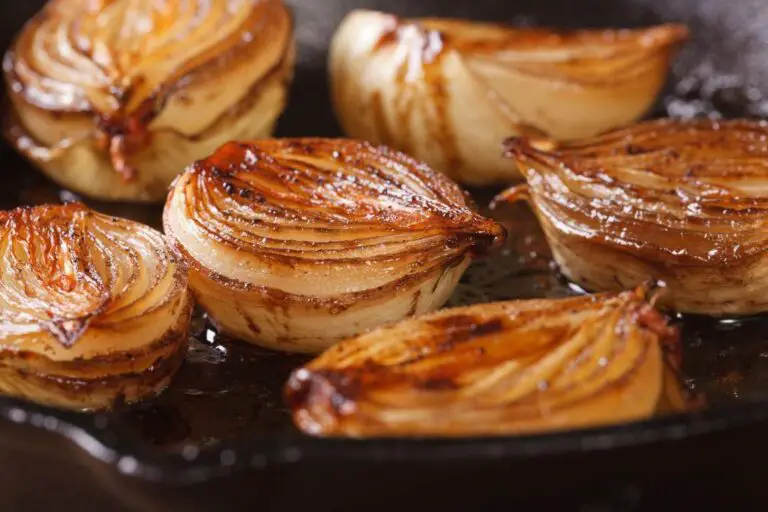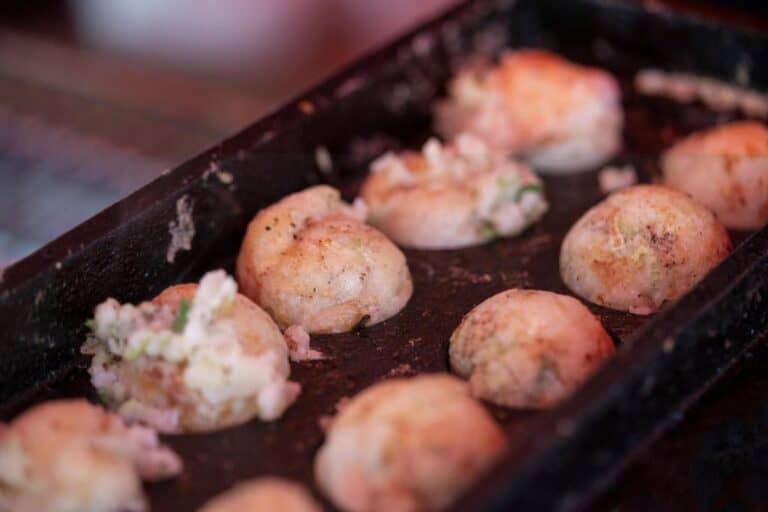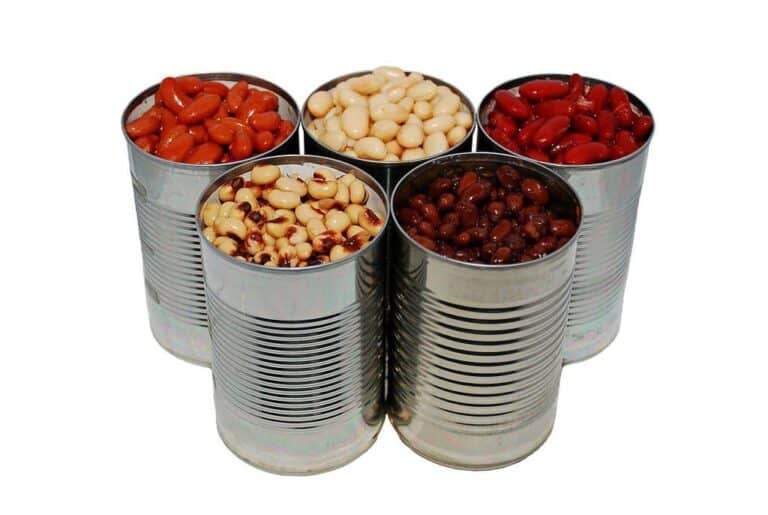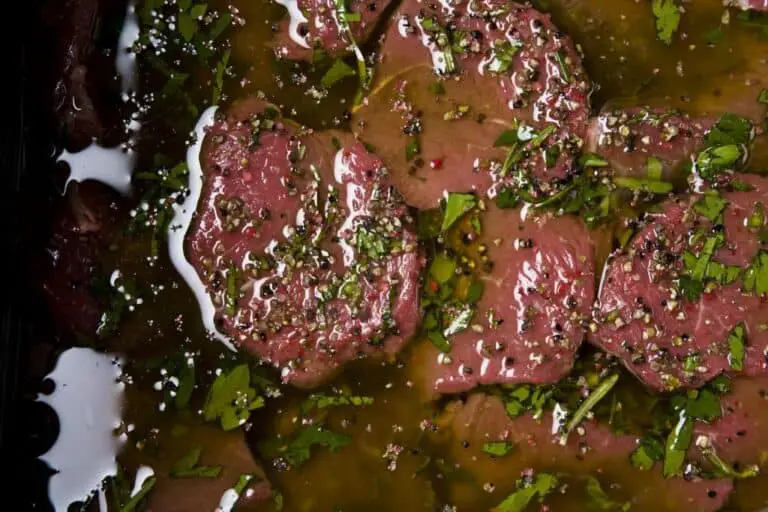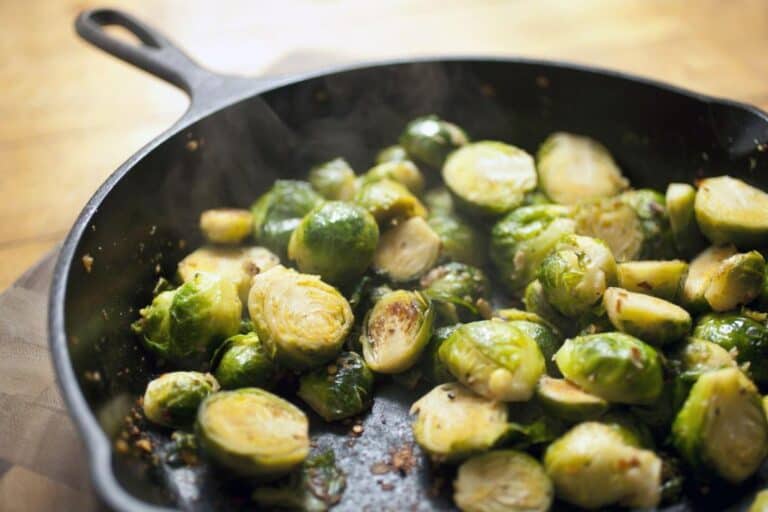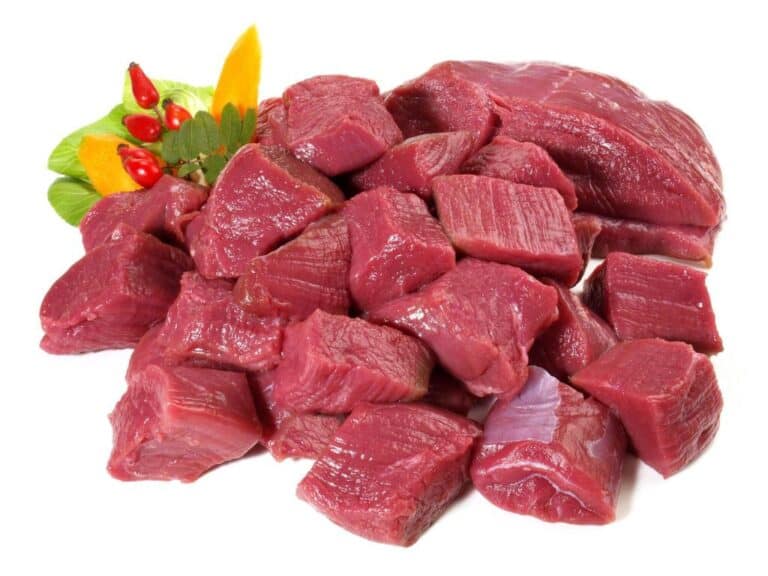Should I Blanch Brussels Sprouts Before Roasting? Pros and Cons
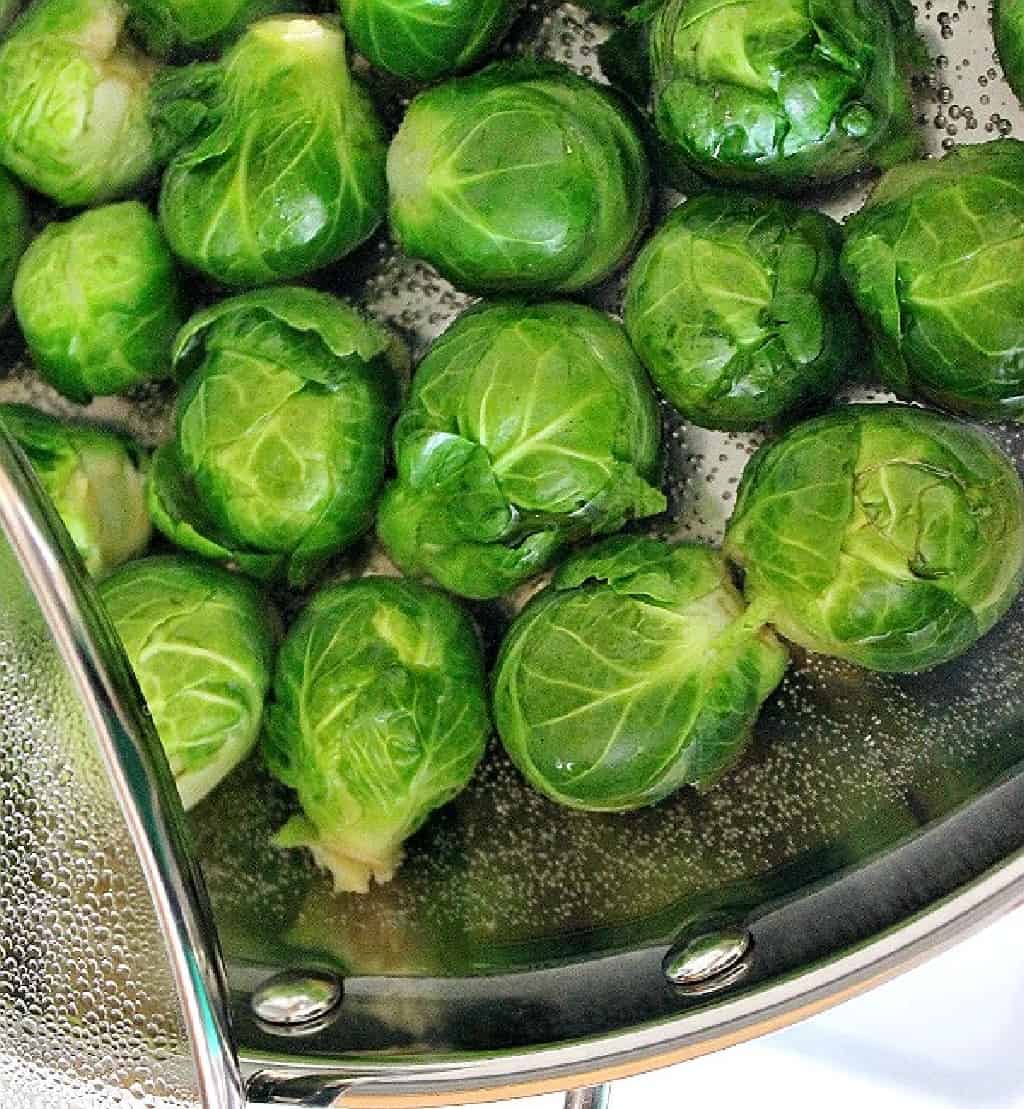
So, you’ve decided to venture into the world of Brussels sprouts, those adorable mini cabbages that pack a punch of flavor. But as you prepare to create a mouthwatering roasted Brussels sprouts dish, a question pops into your mind: should you blanch them before roasting? Fear not, for we’re here to guide you through this culinary conundrum.
Brussels sprouts have gained popularity in recent years for their delightful crunch and unique taste. They make a versatile and nutritious addition to any meal. But when it comes to preparing these green gems, opinions differ on the blanching process. Some swear by it, claiming that blanching brings out the best in these tiny veggies. Others argue that it’s an unnecessary step, adding precious minutes to your cooking time.
In this article, we’ll delve into the debate and uncover the truth behind blanching Brussels sprouts before roasting. We’ll explore the potential benefits, discuss alternative methods, and equip you with the knowledge to make an informed decision based on your personal preferences. Get ready to embark on a flavorful journey as we unravel the mysteries of Brussels sprout roasting techniques.
Roasting Brussels Sprouts
Roasting Brussels sprouts involves cooking them in an oven at high heat, which results in a delectable combination of caramelization, crispness, and tenderness.
This cooking method has gained immense popularity due to the transformation it brings to these humble green gems. The heat causes the outer leaves to become slightly charred, intensifying their flavor while retaining a pleasant crunch. Additionally, roasting brings out the natural sweetness of Brussels sprouts, making them even more irresistible.
What is Blanching?
Before we tackle the question of whether to blanch Brussels sprouts before roasting, let’s delve into the world of blanching itself. Blanching is a cooking technique that involves a two-step process: first, vegetables are immersed in boiling water for a short period, and then they are rapidly cooled in an ice bath. This rapid change in temperature is key to the blanching process.
When vegetables are blanched, it serves several purposes.
- Firstly, blanching helps to partially cook the vegetables, making them more tender and reducing their overall cooking time. This is particularly useful for vegetables with a denser texture, such as Brussels sprouts.
- Secondly, blanching helps preserve the vibrant color of the vegetables. The quick exposure to boiling water helps to deactivate enzymes that can cause discoloration, resulting in vegetables that maintain their bright, appealing hues.
- Lastly, blanching can also help remove any impurities or surface dirt from the vegetables, ensuring a cleaner final product.
However, it’s important to note that blanching can also have an impact on the nutritional profile of the vegetables. Some water-soluble nutrients, such as vitamin C and certain B vitamins, may leach out into the blanching water.
The extent of nutrient loss is generally minimal and can be mitigated by consuming the blanching liquid or using it in other dishes. Additionally, blanching can help break down certain compounds, such as the bitter glucosinolates found in Brussels sprouts, leading to a milder flavor.
Should I Blanch Brussels Sprouts Before Roasting? Pros and Cons
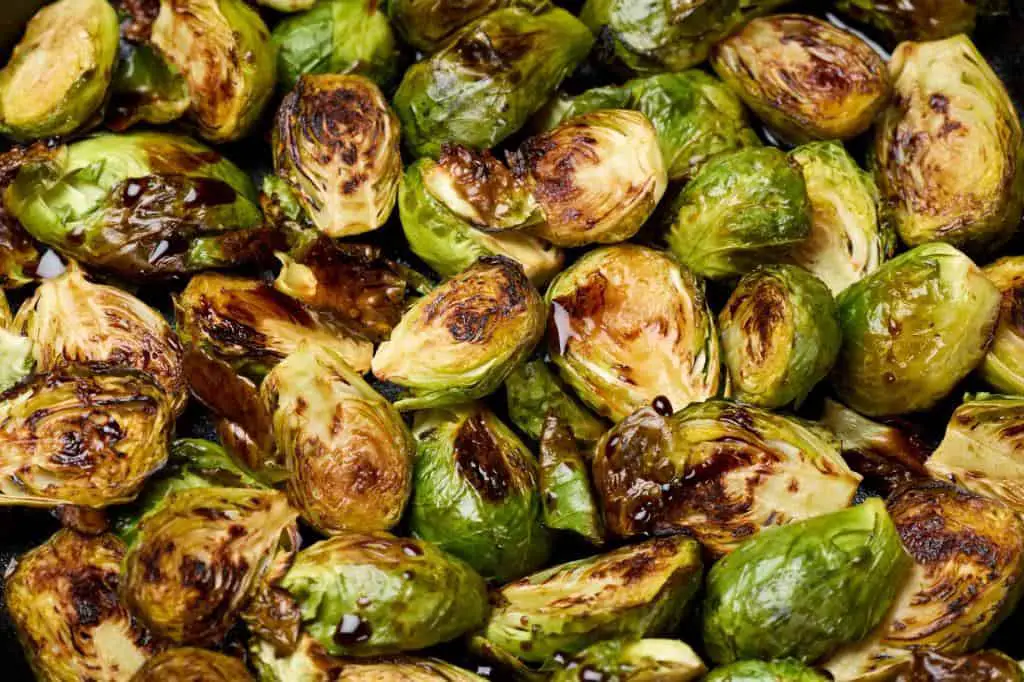
Like any cooking technique, blanching Brussels sprouts before roasting has its advantages and disadvantages. Let’s take a closer look at both sides of the coin:
Pros of Blanching:
- Even cooking: Blanching Brussels sprouts ensures that the interior of the sprouts cooks more evenly, reducing the risk of undercooked or overcooked parts.
- Improved tenderness: Blanching softens the tough outer leaves of Brussels sprouts, resulting in a more tender texture after roasting.
- Reduced cooking time: By partially cooking the sprouts during blanching, the overall roasting time is shortened, allowing you to enjoy your roasted Brussels sprouts sooner.
- Reduced Bitterness: Brussels sprouts are known for their slightly bitter taste. Blanching them before roasting can help to mellow out this bitterness, making them more palatable, especially for those who are sensitive to bitter flavors.
Cons of Blanching:
- Potential loss of nutrients: Blanching may cause a slight loss of water-soluble vitamins and minerals, although the impact is generally minimal.
- Texture alteration: Blanching can slightly alter the texture of Brussels sprouts, making them softer compared to roasting them directly.
How to Blanch Brussels Sprouts
If you’ve decided to give blanching a try, follow these simple steps to achieve the best results:
- Start by trimming the ends of the Brussels sprouts and removing any discolored outer leaves.
- Bring a pot of salted water to a rolling boil.
- Carefully soak Brussels sprouts in the boiling salted water and let them cook for about 2-3 minutes, or until they become bright green and slightly tender.
- While the sprouts are boiling, prepare a bowl filled with ice water.
- Using a slotted spoon or tongs, transfer the blanched sprouts immediately to the ice bath. This will halt the cooking process and help retain their vibrant color.
- Let the sprouts sit in the ice water for about 2-3 minutes, then drain them thoroughly.
- Your Brussels sprouts are now ready for roasting!
The Impact of Blanching on Texture
Texture plays a crucial role in our enjoyment of Brussels sprouts. So, how does blanching influence the texture of these little cruciferous delights?
Blanching Brussels sprouts before roasting has a softening effect on their outer leaves. While this may be desirable for those who prefer a more tender bite, it’s important to note that it can compromise the natural crispness that comes from roasting them directly.
The slight pre-cooking through blanching ensures that the sprouts are cooked evenly throughout, striking a balance between tenderness and caramelized crunch.
Retention of Color and Flavor
One of the key concerns when roasting Brussels sprouts is maintaining their vibrant green color and distinct flavor. Blanching can help address these concerns. By blanching Brussels sprouts before roasting, you can preserve their bright green hue and prevent them from turning dull or yellowish during the roasting process.
Additionally, blanching can help to tame any potential bitterness that might be present in raw Brussels sprouts, resulting in a milder and more enjoyable flavor profile.
Blanching as a Time-Saving Technique
One of the main advantages of blanching Brussels sprouts before roasting is the potential time-saving aspect. By blanching the sprouts, you partially cook them, reducing the overall roasting time. This can be beneficial if you’re short on time or looking for a quicker cooking method.
Blanching also helps ensure even cooking, as the sprouts will be partially cooked through before they hit the oven. This reduces the risk of undercooked or overcooked parts, resulting in a more consistent texture.
Alternative Methods for Prepping Brussels Sprouts
While blanching is a common method for prepping Brussels sprouts ahead of time before roasting, it’s not the only option. Steaming and parboiling are two alternative techniques that can be used to achieve similar results.
Steaming involves cooking the sprouts over boiling water, using a steamer basket or a colander placed over a pot. Parboiling, on the other hand, involves briefly boiling the sprouts until they are partially cooked. Both methods of steaming or boiling Brussels sprouts can help soften the sprouts and reduce the overall roasting time, similar to blanching.
Brussels sprouts can be prepared using various cooking methods besides roasting. You can steam, sauté, or even stir-fry them. Each method offers a unique flavor and texture profile, so feel free to experiment.
Roasting Brussels Sprouts without Blanching
While blanching offers numerous benefits, it’s important to note that roasting Brussels sprouts without blanching is also a perfectly valid option. In fact, many people prefer to skip the blanching step altogether. Here are a few reasons why:
- Time-Saving: Blanching requires an additional step in the cooking process, which may not be ideal if you’re short on time. By roasting Brussels sprouts directly, you can cut down on the overall preparation time.
- Crispiness: Some individuals prefer the extra crunch that comes from roasting unblanched Brussels sprouts. Skipping the blanching step allows the outer leaves to become crispier during roasting.
- Robust Flavor: By skipping blanching, you can retain the natural, slightly bitter flavor of Brussels sprouts. This can be desirable for those who enjoy the distinct taste of this vegetable.
Tips for Roasting Brussels Sprouts
Whether you choose to blanch your Brussels sprouts or not, here are a few essential tips for achieving perfectly roasted sprouts:
- Preheat your oven: It’s important to preheat your oven to around 425°F (220°C) to ensure even cooking and crispy edges.
- Toss with oil and seasoning: Before roasting, coat the sprouts evenly with olive oil or your preferred cooking oil. Season them with salt, pepper, and any additional spices or herbs of your choice.
- Spread them out: Arrange the Brussels sprouts in a single layer on a baking sheet to allow for even heat distribution. Crowding the sprouts can result in uneven cooking and steaming instead of roasting.
- Roast until golden and crispy: Roast the sprouts in the preheated oven for approximately 20-25 minutes, or until they turn golden brown and develop a crispy exterior. Be sure to flip them once or twice during cooking for even browning.
- Flip halfway through: To promote even browning, flip the sprouts halfway through the roasting process using tongs or a spatula.
These tips can help you achieve perfectly roasted Brussels sprouts, regardless of whether you choose to blanch them beforehand or not.
Popular Recipes and Variations
Roasted Brussels sprouts offer a versatile canvas for culinary creativity. Whether you prefer to blanch them or not, there are numerous recipes and flavor combinations to explore. Here are a few popular variations to inspire your culinary adventures:
- Balsamic Glazed Brussels Sprouts: Toss blanched or non-blanched sprouts in a tangy balsamic glaze before roasting for a sweet and savory twist.
- Garlic Parmesan Brussels Sprouts: Roast your sprouts until crispy, then sprinkle them with freshly grated Parmesan cheese and minced garlic for a burst of flavor.
- Maple Dijon Brussels Sprouts: Coat blanched or non-blanched sprouts in a mixture of maple syrup, Dijon mustard, and olive oil, and roast them until caramelized and irresistible.
Feel free to experiment with different seasonings, sauces, and toppings to find your favorite flavor profile.
Conclusion
To blanch or not to blanch? The choice ultimately depends on your personal preference and the desired outcome of your roasted Brussels sprouts. Blanching offers benefits such as improved texture, enhanced color, reduced bitterness, and even cooking.
However, if you’re short on time or prefer a crunchier texture and robust flavor, you can skip the blanching step altogether. Whichever method you choose, following the tips provided will help you achieve delectably roasted Brussels sprouts that are sure to impress your taste buds and elevate your meals. Happy cooking!
Alternative methods like steaming or parboiling can also yield delicious results. With the help of expert tips, you can roast Brussels sprouts to perfection, regardless of whether they were blanched beforehand. Explore the world of flavors and variations, and trust your own taste buds to make the final call. Happy roasting!
FAQs
Does blanching Brussels sprouts affect their nutritional value?
Blanching Brussels sprouts does cause a slight loss of their water-soluble vitamins. However, the impact on overall nutritional value is minimal, as the sprouts retain their essential nutrients during the roasting process.
Can I skip blanching and roast Brussels sprouts directly?
Yes, you can skip blanching and roast Brussels sprouts directly. While blanching offers certain benefits, roasting them without blanching is a valid option. It allows for a shorter cooking time and can result in a slightly different texture and flavor profile.
Will blanching Brussels sprouts make them soggy when roasted?
Blanching briefly before roasting actually helps prevent Brussels sprouts from becoming mushy and soggy. Blanching partially cooks the sprouts and helps retain their structure, ensuring a crispy exterior while maintaining a tender interior.
Does blanching help remove bitterness from Brussels sprouts?
Yes, blanching Brussels sprouts can help reduce their bitterness. Blanching helps mellow out the naturally occurring bitter compounds, resulting in a more balanced flavor when roasted. However, some people enjoy the slight bitterness, so it’s a matter of personal preference.
Can I blanch Brussels sprouts ahead of time and roast them later?
Absolutely! Blanching Brussels sprouts ahead of time is a great option. After blanching, you can store them in the refrigerator for a day or two. When you’re ready to roast, simply remove them from the fridge and proceed with the roasting process.
What temperature should I roast Brussels sprouts at?
Preheat your oven to around 425°F (220°C) for roasting Brussels sprouts. This temperature allows for even cooking and helps achieve a crispy exterior while keeping the inside tender.
How long should I roast Brussels sprouts?
The roasting time for Brussels sprouts usually ranges from 20 to 25 minutes. Keep an eye on them and check for desired doneness. The sprouts should be golden brown and have a slight crispiness on the outside.
What are some seasoning and flavoring options for roasted Brussels sprouts?
Seasoning options for roasted Brussels sprouts are endless. You can use classic combinations like olive oil, salt, and pepper, or get creative with garlic, balsamic vinegar, Parmesan cheese, or even maple syrup and bacon for a delightful twist.
How do I prevent Brussels sprouts from becoming too dry during roasting?
To prevent Brussels sprouts from drying out during roasting, coat them generously with oil before placing them in the oven. This helps lock in moisture and maintain their tenderness. Additionally, avoid overcooking them, as this can lead to dryness.

